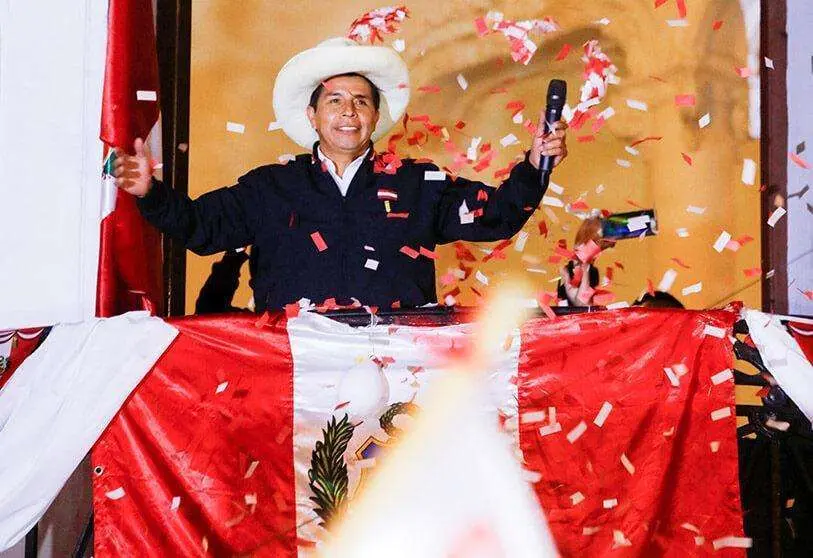A kick to the Peruvian political chessboard

The result is resounding: the trade unionist and Marxist rural teacher Pedro Castillo has won the Peruvian elections. And, after observers from the Organisation of American States (OAS) pointed out that the elections were fair, it seems very difficult for the National Office of Electoral Processes (ONPE) to alter the result. It is true that the leader of Fuerza Popular, Keiko Fujimori, is not resigned to defeat and has challenged the validity of some 200,000 votes, but it would be very suspicious if the ONPE were to annul all of these disputed votes in order to turn the election completely around and thus close Fujimori's 90,000-vote deficit with respect to her rival.
However, what has really set alarm bells ringing among the Peruvian political class is that the emergence of a radical leftist as leader of the country like Castillo could turn the current political framework upside down. This is something that the candidate of Perú Libre, the brand name behind which neo-communists in favour of a revolution similar to that of Chávez have grouped together, has not bothered to deny.
This hypothetical transformation of Peru's political system is already being opposed by many members of a parliament that will have to hand over its seats to those who won the legislative elections of 11 April. The new House, which is due to be constituted on 28 July, would have Peru Libre as the leading party, with 37 seats out of a total of 130, followed by Fuerza Popular, with 24 seats. The remaining 79 seats are shared among eight other parties, ranging from the moderate left to the extreme right, which would force the president to make a pact to push through any reform.
Many of these legislators fear that Castillo will change the constitutional framework to make his revolution possible. Faced with this possibility, a manoeuvre has already been set in motion to kick the institutional board before Castillo does so.
The manoeuvre has come to light with the news that the current provisional president, Francisco Sagasti, has been threatened with impeachment by several deputies if he does not agree to sanction an express reform of the Constitution. All this before 28 July, the date on which he is also due to hand over the presidential sash to his successor.
The alleged constitutional reform would consist of approving up to twelve amendments, all of them aimed at drastically curtailing the powers of the country's president in favour of the legislative branch. The latter, in addition to a strengthened Chamber of Deputies, would be complemented by a Senate.
President Sagasti publicly questioned this rush for such a profound reform of the country's fundamental law and even argued, in order to prevent it from being carried out, the alleged violation of article 206 of the Constitution, which requires a broad debate on the intended reforms, as well as a broad acceptance of their content. In Sagasti's opinion, to attempt to debate and approve twelve amendments in barely a week, and by deputies who are already exercising their power in what in sporting terms are the minutes of the rubbish bin, is a way of kicking the institutional chessboard.
The fractious MEPs are not resigned and have threatened Sagasti with impeachment. He would be the third president, after Martín Vizcarra and his own replacement, Manuel Merino, in barely six months, a record of instability.
These manoeuvres show the great battle - hopefully only political - that is looming in Peru, a scenario that has not been resolved by these elections. On the contrary, the country's polarisation is tending to become even more acute and dangerous, at a time when the major problems facing Peruvian society - the highest number of deaths by COVID-19 on the planet in relative terms, rising unemployment rates and the unstoppable advance of the hunger queues - would require unity, an objective that, in the light of these events, seems impossible.

